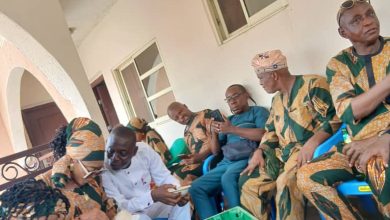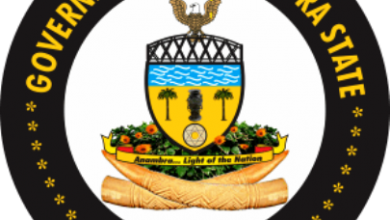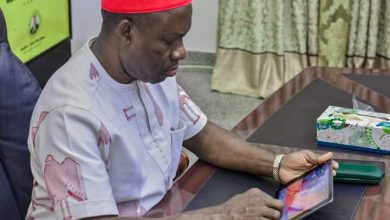
By Christopher Enemuo
Due to the urgency in the adoption of problem-solving strategies, toward curing the insecurity in Nigeria, it will be unproductive for methods which are deployed to check crises are habitually not effective, effective approaches for problem solving should be diagnostic in application, which naturally give legitimacy to proactive resolutions, which are capable of solving certainties and unforeseen circumstances.
The more we shy away from the conviction that a certain industry has uniquely come to stay in Nigeria, the more we deny ourselves an exceptional opportunity of taking advantage of an exclusively ingrained civility of a regulated system.
The participatory industry in Nigeria was predicted in the book – “The 2WallsSystem…The Participant”.
It is obvious that Nigeria is overdue for uniqueness.
The prediction in the said book was not based on fiction, but on certainty. However, from the perspective of solving the problem of insecurity in the country, there is need to establish spacial industries, wide employment, dual employment, insurance, reinsurance, remedies etc. Therefore, it is not a coincidence that Asari Dokubo found and launched one of the branches of a unique enterprise of participatory industry.
However, Asari’s definition and his method suggested he operates an obsolete system notwithstanding its little effectiveness,therefore such system cannot be recommended in whole for a civilised society.
“… I am a participant, I fight at the side of the Nigeria state“- Chief Asari Dokubo @Presidential Villa, Abuja, 2023.
The Militia Mercenary Participation Of Asari Dokubo.
From the weight of utterances viz a viz testimonies of Chief Asari Dokubo, we would be living in denial if we pretend not to understand mercenary participation. Considering its lifelike, scope and context, it simply means, solving problems by hiring external help. The government/military are primarily the employers and managers of any form of militia mercenary.
From time immemorial, there have never been an internal battle of different content, which were fought independently by the home military. There have been some great elements of mercenary acquaintances which usually take the forms of allyship, espionage, agent provocateur, whistle-blowing, droning and boots-on-ground deployments, etc.
One of the integral aspects of an intellectually active military coverage is her ability to employ, deploy and manage her local mercenary branches.
However, the choice of “foreign mercenary” for internal affairs has proven over time to be a “not preferable”.
The main reason for not adopting alien mercenary is because of the inherent negative effect of aftermath insubordination or rebellion.
In other words; it is imprudent for a country to directly employ the services of foreign mercenaries to handle its internal affairs, while its military is focused on the external concerns.
Therefore, the frequent insecurity situation in the country recommends “a non-monopolised mercenary participation” as a cure button for the reoccurring insecurity situation. Consequently, it is discernible that the system grooms, manages and even exports its own mercenary branches.
Going by the wordings of Chief Asari’s testament (in Aso Rock), it is therefore certain that there are existing, and well known participatory mercenary industries which have been wearing legitimate images in Nigeria.
In the next part 2, I will be investigating Asari’s methodology with which he owns and runs the enterprise of “militia mercenary participation”. I am going to look at its sustained existence, authority, justification, jurisdiction, concerns, regulation, monopoly, obsoleteness, and precision. This analysis would exclusively be rested upon Asari’s utterances viz a viz testimonies at the Presidential Villa, Abuja, Nigeria.
Manu Enemuo C.C Esq.



